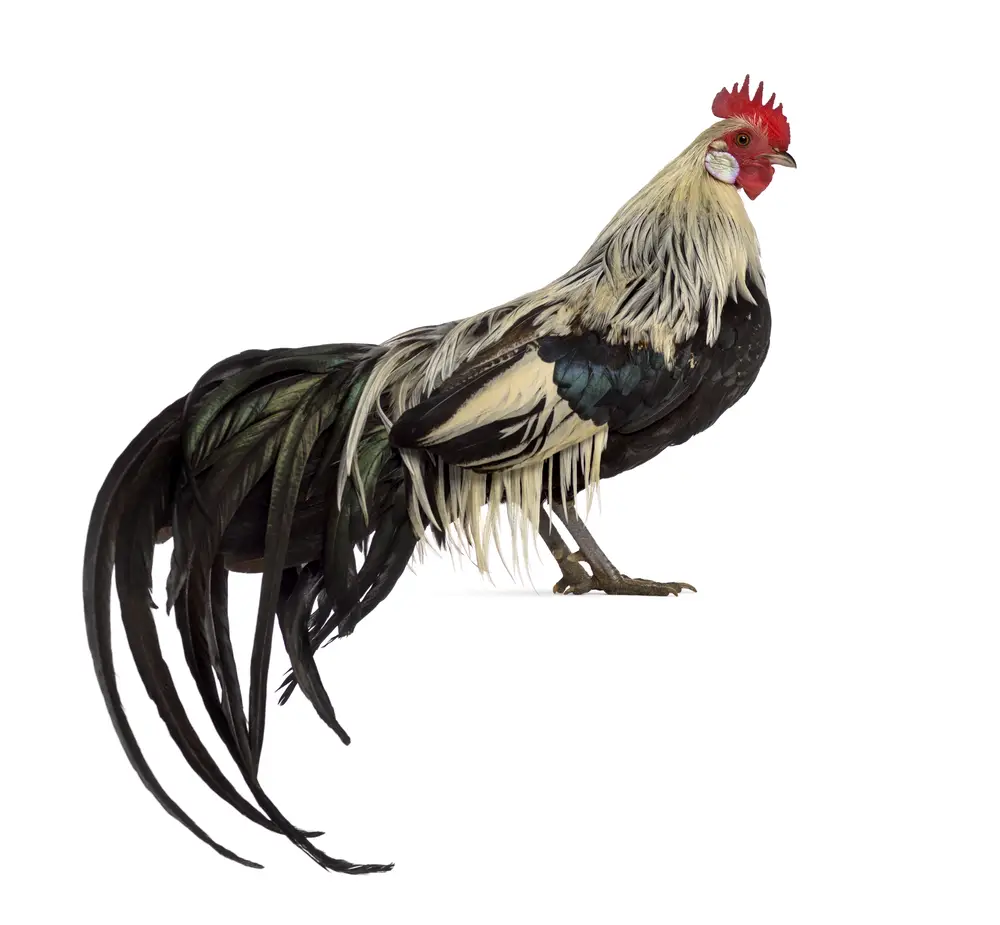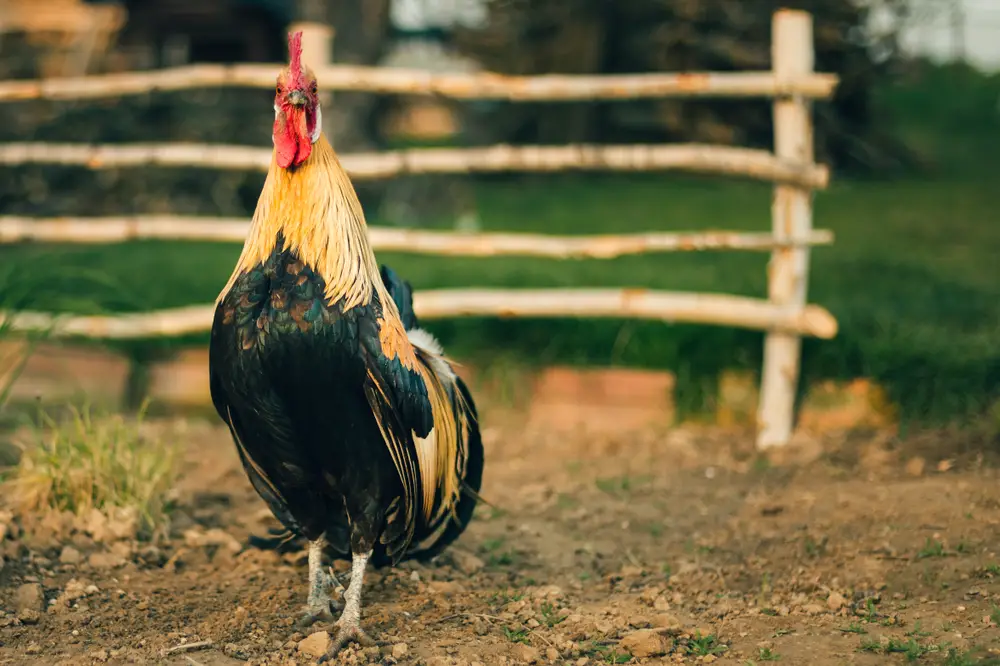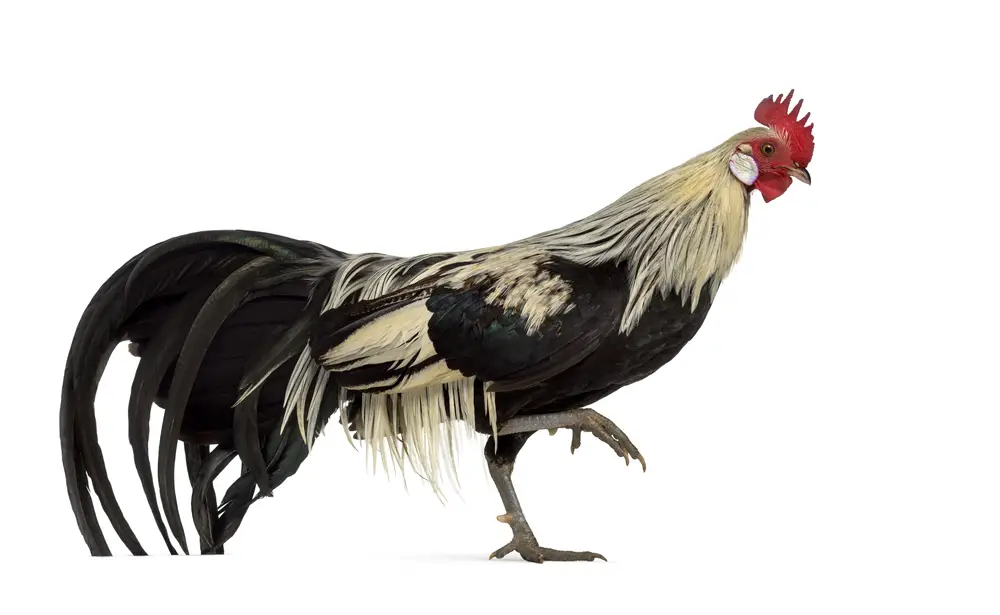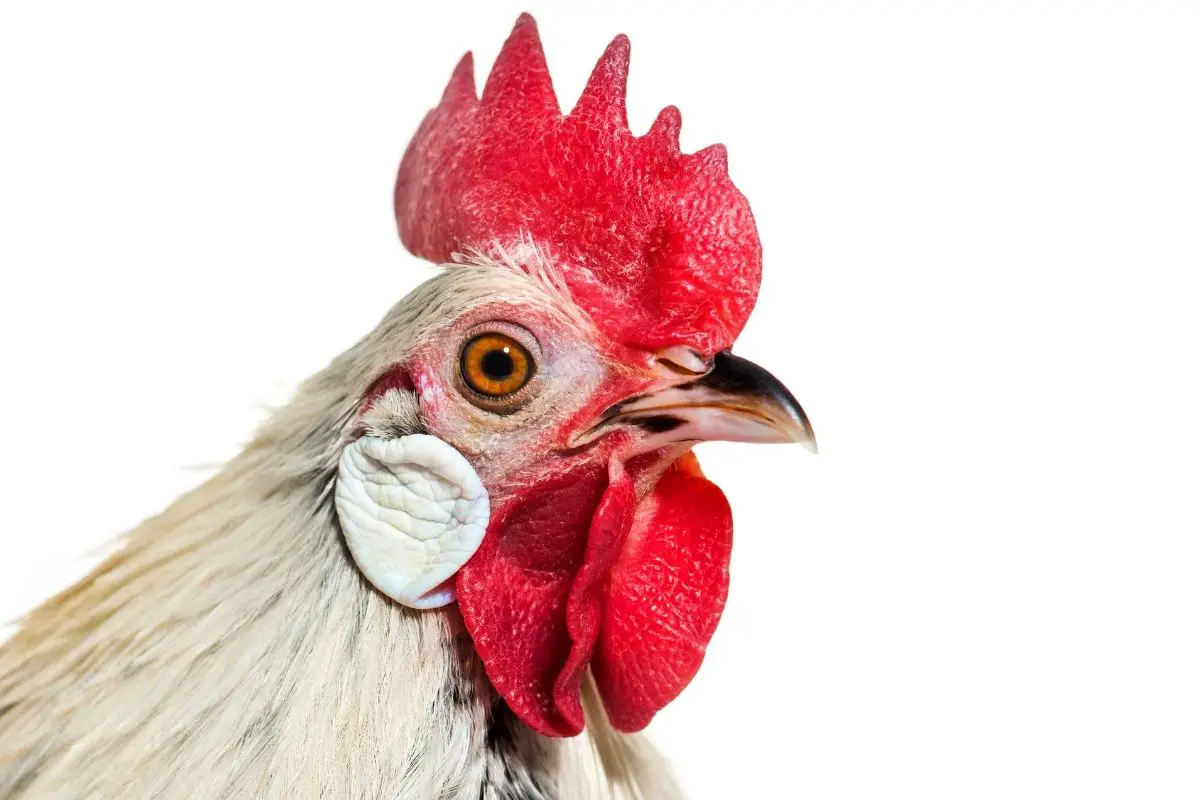The Phoenix Chicken is a highly ornamental and rare German chicken breed known for its extremely long tail feathers, but only lays around 1 egg per week. They have an overall pheasant appearance with white earlobes and a single comb that will have five individual peaks, with red wattles.
This chicken breed comes from crossing imported Japanese birds with long tails such as the Onagadori, with different breeds such as Kruper, Leghorn, Malay, Old English Game, and Yokohama. The first person to present this breed was Hugo du Roi, the first president of the German poultry association.
The American Poultry Association accepted the silver variety of the Phoenix in 1965 followed by the gold variety in 1983. It was many years before the APA accepted the black-breasted red in 2018.
Many people are interested in owning these birds because of their exotic look, but there are several aspects that need to be taken into consideration before buying a Phoenix Chicken.
Table of Contents
Phoenix Chickens Require Special Coops
Phoenix chickens only molt once every few years due to a recessive gene. This is what allows these birds to grow such incredibly long tails which can be up to 90 centimeters.
Caring for Phoenix chickens requires far more work than other breeds – you might consider them a VIP of the chicken world. So be warned: They require special housing, with very high perches in order to preserve the tail and allow it to grow.

It is likely that you will need to custom-build a coop that meets all the requirements for these chickens. It’s unlikely that you’ll find prefabricated ones built to accommodate the height they need.
Phoenix Chickens Are Not Friendly
If you are looking for a friendly pet that will love interacting with you, move right along. Phoenix chickens are not friendly and prefer solitude. They aren’t ideal for families and other pets.
They also do not get along well with other chicken breeds, so you must be sure that you do not desire companionship as they are not particularly docile, and do not want to exist in a mixed flock.
If you decide to raise Phoenix chickens, you will need to ensure that if you have multiple birds that they are of a similar age. You may have problems housing multiple Phoenix Roosters together in particular or with standard breeds.
Phoenix Chickens Do Not Lay Many Eggs
Phoenix hens are not known as prolific egg layers and not used in egg production. They will, on average produce 45 eggs a year, but certain birds may produce more.
The egg size you may get from the Phoenix chicken will also be small, as the bird itself is quite small, and many come in bantam varieties.
The egg color you may get can vary between white and brown, and you may only get one egg per week from egg laying hens, although some birds will lay up to three.
Bantam chickens of this breed will not produce even smaller eggs due to their tiny stature and vent.
Interestingly, Phoenix chickens do make excellent mothers. They can be broody, so be sure to keep an eye on any eggs that do not seem well-tended.
Phoenix Chickens Need Land
Phoenix chicken breeds are naturally free-range foragers and they enjoy finding food. For this reason, you must ensure that you provide plenty of land and foraging opportunities.

These birds will likely not thrive in a backyard coop unless they have the land needed, so be sure you have enough space to accommodate them prior to purchasing them. Suburban backyards are typically inadequate, so aim for at least 1 acre for 3 to 5 birds.
Phoenix Chickens Can Have Health Problems
Any chicken can have health issues but Phoenix chickens are more prone to certain issues.
One disease that Phoenix chickens contract more often is Fowl Cholera which is a chronic condition that affects tissues, joints, wattles and sinuses of birds infected by Pasteurella Multocida.
Another disease that occurs in Phoenix chickens is Coccidiosis which is caused by Coccidian protozoa (a parasite), that lives in and damages a small region of their gut.
Luckily, if you provide a high quality diet, many of the common diseases in Phoenix chickens can be managed or eliminated.
Phoenix Chickens Prefer a Warm Climate
This breed thrives in warm, tropical environments. It will not do as well in colder climates although you may be able to provide extra warmth and care by building a state-of-the-art coop with heating elements and roosts.

The Phoenix Chicken is a beautiful bird with a gorgeous tail and unique appearance. While you may be considering buying this bird for the aesthetic, you must be prepared for the extra care required for these chickens.

